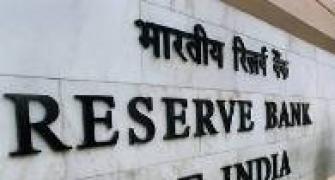Earning money is important, no doubt, and everyone knows it. What escapes many a soul is that what you do with that hard earned money is equally, if not more, important.
Here, we discuss a few personal finance instruments, which can be used for preserving and growing your money. Savings account: This is the most used and simplest financial instrument. A person can deposit money in a savings account with any bank offering retail banking services.
Savings account: This is the most used and simplest financial instrument. A person can deposit money in a savings account with any bank offering retail banking services.
Although savings account provides a modest interest rate, so low that it cannot even offset the erosion in value caused by inflation let alone generate a real return, it is still popular because:
1. It provides principal security. Money kept with oneself can be lost or stolen; the temptation of unnecessary spending is also there.
2. It is a highly liquid instrument. ATMs have ensured that money deposited in a savings account can be accessed anytime, anywhere.
Mutual fund: Mutual fund is an attractive instrument for those who want a share of the tremendous returns the Indian equity market is generating but do not have the expertise to invest in it. The advantages of this instrument are:
1. Using investors' money, a mutual fund creates a portfolio in which individual investments have different responses to the same set of events in the equity market.
2. When the value of a few investments falls, that of a few others rises, thus ensuring that the value of the portfolio doesn't fall by much, if at all. Empirical evidence shows that such a portfolio generates steady returns over time.
3. Mutual funds are managed by highly skilled investment managers. Additionally, mutual funds are subjected to government regulations designed to protect investors.
4. Mutual funds provide investors with several schemes to invest in. An investor can choose a scheme whose investment objectives are in line with her financial goals.
One disadvantage of mutual funds is that their performance is positively correlated with the performance of the equity market.
In the event of stock market cash, investors in mutual funds stand to lose a major part of the principal amount invested, let alone receive return on investment.
However, mutual fund is a financial instrument in which the pros clearly outweigh the cons and therefore it is very popular.
Credit card: A credit card as a financial instrument is as good as its user. To understand the point better, let us look at the advantages and disadvantages of the instrument.
The advantages are:
1. It allows the user to purchase on credit, and therefore she doesn't have to carry a lot of cash.
2. Purchases are consolidated into a single statement at month-end. This facilitates accurate record keeping.
3. It allows remote purchasing, i.e. shopping online or by telephone.
4. It is a cheap source of short-term borrowing, as interest is paid monthly only on the amount outstanding and not on the quantum of loan taken over the entire life of credit card usage.
The disadvantages are:
1. It encourages impulse buying, which leads to overspending and buying goods and services the card holder may not really need.
2. Using multiple credit cards is not recommended. Although the amount borrowed with a single credit card may not be much, that amount multiplied by five (say) credit cards each having the same outstanding amount results in substantial indebtedness.
3. Remote use of credit card is risky as the card details may be intercepted by hackers, who then will have access to the cardholder's bank account.
4. A person can derive the maximum benefit out of this instrument if he holds not more than two credit cards and uses them judiciously.
Insurance: Be it life insurance, health insurance or car insurance, the primary purpose of these instruments is risk mitigation. If we look from the perspective of life insurance, we can list out the following advantages associated with it (the advantages of other types of insurances are mostly similar).
1. It ensures financing for a family that has lost its earning member due to untimely death.
2. It acts as a long-term investment for meeting financial goals like children's education and marriage, buying a home and planning a retired life, among others.
3. It often provides the benefits of protection against critical diseases and hospitalization expenses.
4. Life insurance is a highly regulated sector and IRDA is the regulatory body. The hawkish regulatory oversight ensures safety of the policyholders' money.
This is an absolute must-have instrument in a personal finance portfolio.
Public Provident Fund (PPF): It is a Government of India debt instrument. Although it is an illiquid instrument in which you have to deposit an amount between Rs 500 and Rs 70,000 every year and withdraw the principal, along with the interest, not before 15 years, it offers the following advantages:
1. There is no default risk.
2. The money invested in a PPF is tax deductable and hence this is a very attractive tax saving instrument.
3. Offers attractive interest rate of 8 per cent, which is again tax-free.








